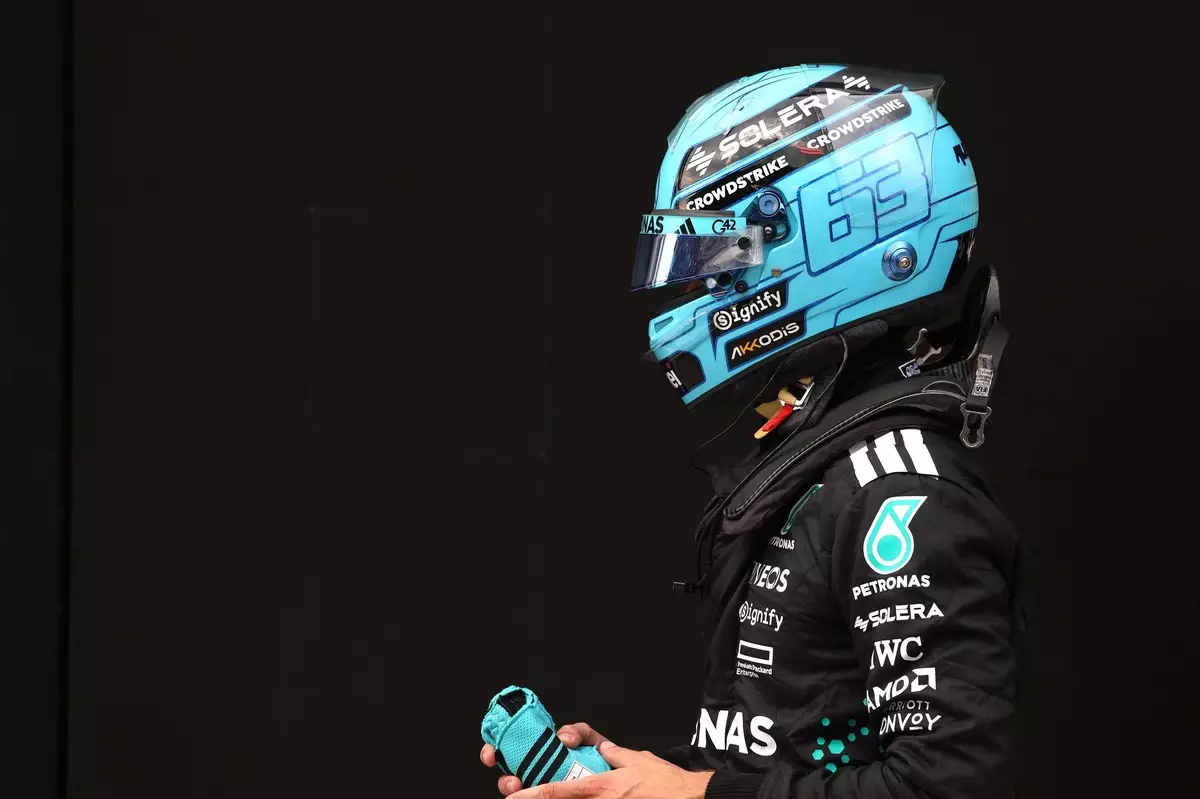In the fiercely competitive world of Formula 1, where contracts are as much a symbol of a driver’s worth as their on-track performance, George Russell’s decision to abstain from rushing his renewal process is both strategic and commendable. Amid rampant speculation and the high-octane pressure of team negotiations, Russell’s calm demeanor underscores a profound understanding of his value and the importance of timing. This patience isn’t just a personal choice; it’s a leadership trait that signals confidence, maturity, and a long-term vision that many of his peers often overlook.
Rather than succumbing to the quick gratification of securing a contract during the summer break, Russell’s approach emphasizes the significance of deliberate decision-making. It’s tempting in motorsport to chase immediate results—be it a quick contract extension or a momentary boost of ego—but Russell’s measured stance reveals an acknowledgment that genuine growth often requires patience. By prioritizing a clear head and ensuring the conditions are right, he positions himself as a driver who understands that sustainable success stems from well-thought-out commitments rather than impulsive negotiations.
Rejecting the Culture of Rushing: A Lesson in Strategic Thinking
Formula 1 has long been a sport that rewards strategic thinking. From pit-stop timing to race tactics, the smartest decisions often come from a place of calm analysis rather than frantic reaction. Russell’s refusal to rush his contract reflects his understanding of this principle on a personal level. By deliberately delaying negotiations until after the summer break, he maintains control over his career trajectory, ensuring that both his team and he are aligned on future goals before sealing the deal.
This approach stands in stark contrast to the often chaotic nature of driver transfers, where months of negotiations can degenerate into chaos or dissatisfaction. Russell’s stance demonstrates foresight—he recognizes that rushing into a new deal without adequate reflection could undermine his future potential. It’s a reminder that patience in negotiations often translates into stronger partnerships, where both parties are committed to a shared vision rather than settling for immediate, perhaps superficial, gains.
The Significance of Long-Term Vision in a Rapidly Evolving Sport
What makes Russell’s approach even more remarkable is the context within which it occurs. The 27-year-old is operating in an environment marked by significant regulatory changes scheduled for 2026, which could redefine the competitiveness landscape of Formula 1. With such uncertainty looming, rushing into a contract that might soon be rendered outdated or less advantageous would be a strategic misstep.
By choosing to wait, Russell is effectively safeguarding his future. He seeks clarity on upcoming regulation changes and the team’s direction before committing long-term. This demonstrates a sophisticated awareness that success in F1 isn’t just about the current season but about positioning oneself advantageously for the seasons to come. It’s not just about being a talented driver; it’s about being a shrewd architect of one’s career path.
Confidence vs. Complacency: A Fine Line
Russell’s silence on the matter, coupled with the firm declaration that nothing will happen before the Dutch Grand Prix, signals a healthy confidence rather than complacency. It’s evident that he’s confident in his performance and his standing within Mercedes, as echoed by Toto Wolff’s praise. Such confidence is vital in a sport where mental resilience often determines success more than raw speed.
However, this confidence must be distinguished from complacency. Russell’s decision to delay signing is not born out of doubt but from a strategic wish to align his professional ambitions with the right circumstances. This distinction is crucial. It highlights that true leadership involves knowing when to assert patience and when to act—an art that Russell is evidently mastering. Past drivers often falter by rushing decisions driven by external pressures; Russell’s approach suggests he is aware that authentic leadership means controlling the narrative rather than being controlled by it.
A Reflection of a Maturing Driver and Athlete
In the broader context, Russell’s stance exemplifies the evolution of a driver transitioning from promising talent to seasoned professional. His years at Williams, his victories, and consistent performances with Mercedes have cultivated not just driving skills but also a strategic mindset. Holding back on contract negotiations illustrates that he recognizes the importance of fostering trust and building a sustainable partnership with the team.
By prioritizing the quality of the agreement over the urgency to finalize, Russell subtly asserts his values—dedication, patience, foresight—that define a mature athlete who understands that the true measure of success lies beyond the immediate. This mindset will serve him well as the sport continues to evolve, and as he contends with the tricky dynamics of team politics and the unpredictable nature of racing.
In an industry that often celebrates flash and immediate results, Russell’s quiet confidence and strategic patience set him apart. His refusal to be rushed speaks volumes about his understanding of what it truly takes to excel—in sport, in business, and in life.

